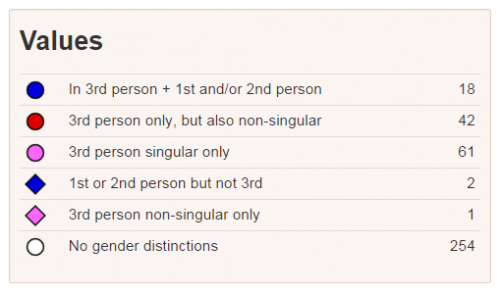One of the things my readers ask me most often, in response to this blog’s exploration of the ongoing decline and impending fall of modern industrial civilization, is what I suggest people ought to do about it all. It’s a valid question, and it deserves a serious answer.
Now of course not everyone who asks the question is interested in the answers I have to offer. A great many people, for example, are only interested in answers that will allow them to keep on enjoying the absurd extravagance that passed, not too long ago, for an ordinary lifestyle among the industrial world’s privileged classes, and is becoming just a little bit less ordinary with every year that slips by. To such people I have nothing to say. Those lifestyles were only possible because the world’s industrial nations burnt through half a billion years of stored sunlight in a few short centuries, and gave most of the benefits of that orgy of consumption to a relatively small fraction of their population; now that easily accessible reserves of fossil fuels are running short, the party’s over.
Yes, I’m quite aware that that’s a controversial statement. I field heated denunciations on a regular basis insisting that it just ain’t so, that solar energy or fission or perpetual motion or something will allow the industrial world’s privileged classes to have their planet and eat it too. Printer’s ink being unfashionable these days, a great many electrons have been inconvenienced on the internet to proclaim that this or that technology must surely allow the comfortable to remain comfortable, no matter what the laws of physics, geology, or economics have to say. Now of course the only alternative energy sources that have been able to stay in business even in a time of sky-high oil prices are those that can count on gargantuan government subsidies to pay their operating expenses; equally, the alternatives receive an even more gigantic “energy subsidy” from fossil fuels, which make them look much more economical than they otherwise would. Such reflections carry no weight with those whose sense of entitlement makes living with less unthinkable.
I’m glad to say that there are fair number of people who’ve gotten past that unproductive attitude, who have grasped the severity of the crisis of our time and are ready to accept unwelcome change in order to secure a livable future for our descendants. They want to know how we can pull modern civilization out of its current power dive and perpetuate it into the centuries ahead. I have no answers for them, either, because that’s not an option at this stage of the game; we’re long past the point at which decline and fall can be avoided, or even ameliorated on any large scale.
A decade ago, a team headed by Robert Hirsch and funded by the Department of Energy released a study outlining what would have to be done in order to transition away from fossil fuels before they transitioned away from us. What they found, to sketch out too briefly the findings of a long and carefully worded study, is that in order to avoid massive disruption, the transition would have to begin twenty years before conventional petroleum production reached its peak and began to decline. There’s a certain irony in the fact that 2005, the year this study was published, was also the year when conventional petroleum production peaked; the transition would thus have had to begin in 1985—right about the time, that is, that the Reagan administration in the US and its clones overseas were scrapping the promising steps toward just such a transition.
A transition that got under way in 2005, in other words, would have been too late, and given the political climate, it probably would have been too little as well. Even so, it would have been a much better outcome than the one we got, in which most of us have spent the last ten years insisting that we don’t have to worry about depleting oilfields because fracking was going to save us all. At this point, thirty years after the point at which we would have had to get started, it’s all very well to talk about some sort of grand transition to sustainability, but the time when such a thing would have been possible came and went decades ago. We could have chosen that path, but we didn’t, and insisting thirty years after the fact that we’ve changed our minds and want a different future than the one we chose isn’t likely to make any kind of difference that matters.
So what options does that leave? In the minds of a great many people, at least in the United States, the choice that apparently comes first to mind involves buying farmland in some isolated rural area and setting up a homestead in the traditional style. Many of the people who talk enthusiastically about this option, to be sure, have never grown anything more demanding than a potted petunia, know nothing about the complex and demanding arts of farming and livestock raising, and aren’t in anything like the sort of robust physical condition needed to handle the unremitting hard work of raising food without benefit of fossil fuels; thus it’s a safe guess that in most of these cases, heading out to the country is simply a comforting daydream that serves to distract attention from the increasingly bleak prospects so many people are facing in the age of unraveling upon us.
There’s a long history behind such daydreams. Since colonial times, the lure of the frontier has played a huge role in the American imagination, providing any number of colorful inkblots onto which fantasies of a better life could be projected. Those of my readers who are old enough to remember the aftermath of the Sixties counterculture, when a great many young people followed that dream to an assortment of hastily created rural communes, will also recall the head-on collision between middle-class fantasies of entitlement and the hard realities of rural subsistence farming that generally resulted. Some of the communes survived, though many more did not; that I know of, none of the surviving ones made it without a long and difficult period of readjustment in which romantic notions of easy living in the lap of nature got chucked in favor of a more realistic awareness of just how little in the way of goods and services a bunch of untrained ex-suburbanites can actually produce by their own labor.
In theory, that process of reassessment is still open. In practice, just at the moment, I’m far from sure it’s an option for anyone who’s not already traveled far along that road. The decline and fall of modern industrial civilization, it bears repeating, is not poised somewhere off in the indefinite future, waiting patiently for us to get ready for it before it puts in an appearance; it’s already happening at the usual pace, and the points I’ve raised in posts here over the last few weeks suggest that the downward slope is probably going to get a lot steeper in the near future. As the collapse of the fracking bubble ripples out through the financial sphere, most of us are going to be scrambling to adapt, and the chances of getting everything lined up in time to move to rural property, get the necessary equipment and supplies to start farming, and get past the worst of the learning curve before crunch time arrives are not good.
If you’re already on a rural farm, in other words, by all means pursue the strategy that put you there. If your plans to get the necessary property, equipment, and skills are well advanced at this point, you may still be able to make it, but you’d probably better get a move on. On the other hand, dear reader, if your rural retreat is still off there in the realm of daydreams and good intentions, it’s almost certainly too late to do much about it, and where you are right now is probably where you’ll be when the onrushing waves of crisis come surging up and break over your head.
That being the case, are there any options left other than hiding under the bed and hoping that the end will be relatively painless? As it happens, there are.
The point that has to be understood to make sense of those options is that in the real world, as distinct from Hollywood-style disaster fantasies, the end of a civilization follows the famous rule attributed to William Gibson: “The future is already here, it’s just not evenly distributed yet.” Put another way, the impacts of decline and fall aren’t uniform; they vary in intensity over space and time, and they impact particular systems of a falling civilization at different times and in different ways. If you’re in the wrong place at the wrong time, and depend on the wrong systems to support you, your chances aren’t good, but the places, times, and systems that take the brunt of the collapse aren’t random. To some extent, those can be anticipated, and some of them can also be avoided.
Here’s an obvious example. Right now, if your livelihood depends on the fracking industry, the tar sands industry, or any of the subsidiary industries that feed into those, your chances of getting through 2015 with your income intact are pretty minimal. People in those industries who got to witness earlier booms and busts know this, and a good many of them are paying off their debts, settling any unfinished business they might have, and making sure they can cover a tank of gas or a plane ticket to get back home when the bottom falls out. People in those industries who don’t have that experience to guide them, and are convinced that nothing bad can actually happen to them, are not doing these things, and are likely to end up in a world of hurt when their turn comes.
They’re not the only ones who would benefit right now from taking such steps. A very large part of the US banking and finance industry has been flying high on bloated profits from an assortment of fracking-related scams, ranging from junk bonds through derivatives to exotic financial fauna such as volumetric production payments. Now that the goose that laid the golden eggs is bobbing feet upwards in a pond of used fracking fluid, the good times are coming to a sudden stop, and that means sharply reduced income for those junior bankers, brokers, and salespeople who can keep their jobs, and even more sharply reduced prospects for those who don’t.
They’ve got plenty of company on the chopping block. The entire retail sector in the US is already in trouble, with big-box stores struggling for survival and shopping malls being abandoned, and the sharp economic downturn we can expect as the fracking bust unfolds will likely turn that decline into freefall, varying in intensity by region and a galaxy of other factors. Those who brace themselves for a hard landing now are a good deal more likely to make it than those who don’t, and those who have the chance to jump to something more stable now would be well advised to make the leap.
That’s one example; here’s another. I’ve written here in some detail about how anthropogenic climate change
will wallop North America in the centuries ahead of us. One thing that’s been learned from the last few years of climate vagaries is that North America, at least, is shifting in exactly the way paleoclimatic data would suggest—more or less the same way it did during warm periods over the last ten or twenty million years. The short form is that the Southwest and mountain West are getting baked to a crackly crunch under savage droughts; the eastern Great Plains, Midwest, and most of the South are being hit by a wildly unstable climate, with bone-dry dry years alternating with exceptionally soggy wet ones; while the Appalachians and points eastward have been getting unsteady temperatures but reliable rainfall. Line up your choice of subsistence strategies next to those climate shifts, and if you still have the time and resources to relocate, you have some idea where to go.
All this presumes, of course, that what we’re facing has much more in common with the crises faced by other civilizations on their way to history’s compost heap than it does with the apocalyptic fantasies so often retailed these days as visions of the immediate future. I expect to field a flurry of claims that it just ain’t so, that everything I’ve just said is wasted breath because some vast and terrible whatsit will shortly descend on the whole world and squash us like bugs. I can utter that prediction with perfect confidence, because I’ve been fielding such claims over and over again since long before this blog got started. All the dates by which the world was surely going to end have rolled past without incident, and the inevitable cataclysms have pulled one no-show after another, but the shrill insistence that something of the sort really will happen this time around has shown no sign of letting up. Nor will it, since the unacceptable alternative consists of taking responsibility for doing something about the future.
Now of course I’ve already pointed out that there’s not much that can be done about the future on the largest scale. As the fracking bubble implodes, the global economy shudders, the climate destabilizes, and a dozen other measures of imminent crisis head toward the red zone on the gauge, it’s far too late in the day for much more than crisis management on a local and individual level. Even so, crisis management is a considerably more useful response than sitting on the sofa daydreaming about the grandiose project that’s certain to save us or the grandiose cataclysm that’s certain to annihilate us—though these latter options are admittedly much more comfortable in the short term.
What’s more, there’s no shortage of examples in relatively recent history to guide the sort of crisis management I have in mind. The tsunami of discontinuities that’s rolling toward us out of the deep waters of the future may be larger than the waves that hit the Western world with the coming of the First World War in 1914, the Great Depression in 1929, or the Second World War in 1939, but from the perspective of the individual, the difference isn’t as vast as it might seem. In fact, I’d encourage my readers to visit their local public libraries and pick up books about the lived experience of those earlier traumas. I’d also encourage those with elderly relatives who still remember the Second World War to sit down with them over a couple of cups of whatever beverage seems appropriate, and ask about what it was like on a day-by-day basis to watch their ordinary peacetime world unravel into chaos.
I’ve had the advantage of taking part in such conversations, and I’ve also done a great deal of reading about historical crises that have passed below the horizon of living memory. There are plenty of lessons to be gained from such sources, and one of the most important also used to be standard aboard sailing ships in the days before steam power. Sailors in those days had to go scrambling up the rigging at all hours and in all weathers to set, reef, or furl sails; it was not an easy job—imagine yourself up in the rigging of a tall ship in the middle of a howling storm at night, clinging to tarred ropes and slick wood and trying to get a mass of wet, heavy, wind-whipped canvas to behave, while below you the ship rolls from side to side and swings you out over a raging ocean and back again. If you slip and you’re lucky, you land on deck with a pretty good chance of breaking bones or worse; if you slip and you’re not lucky, you plunge straight down into churning black water and are never seen again.
The rule that sailors learned and followed in those days was simple: “One hand for yourself, one hand for the ship.” Every chore that had to be done up there in the rigging could be done by a gang of sailors who each lent one hand to the effort, so the other could cling for dear life to the nearest rope or ratline. Those tasks that couldn’t be done that way, such as hauling on ropes, took place down on the deck—the rigging was designed with that in mind. There were emergencies where that rule didn’t apply, and even with the rule in place there were sailors who fell from the rigging to their deaths, but as a general principle it worked tolerably well.
I’d like to propose that the same rule might be worth pursuing in the crisis of our age. In the years to come, a great many of us will face the same kind of scramble for survival that so many others faced in the catastrophes of the early 20th century. Some of us won’t make it, and some will have to face the ghastly choice between sheer survival and everything else they value in life. Not everyone, though, will land in one or the other of those categories, and many those who manage to stay out of them will have the chance to direct time and energy toward the broader picture.
Exactly what projects might fall into that latter category will differ from one person to another, for reasons that are irreducibly personal. I’m sure there are plenty of things that would motivate you to action in desperate times, dear reader, that would leave me cold, and of course the reverse is also true—and in times of crisis, of the kind we’re discussing, it’s personal factors of that sort that make the difference, not abstract considerations of the sort we might debate here. I’ll be discussing a few of the options in upcoming posts, but I’d also encourage readers of this blog to reflect on the question themselves: in the wreck of industrial civilization, what are you willing to make an effort to accomplish, to defend, or to preserve?
In thinking about that, I’d encourage my readers to consider the traumatic years of the early 20th century as a model for what’s approaching us. Those who were alive when the first great wave of dissolution hit in 1914 weren’t facing forty years of continuous cataclysm; as noted here repeatedly, collapse is a fractal process, and unfolds in real time as a sequence of crises of various kinds separated by intervals of relative calm in which some level of recovery is possible. It’s pretty clear that the first round of trouble here in the United States, at least, will be a major economic crisis; at some point not too far down the road, the yawning gap between our senile political class and the impoverished and disaffected masses promises the collapse of politics as usual and a descent into domestic insurgency or one of the other standard patterns by which former democracies destroy themselves; as already noted, there are plenty of other things bearing down on us—but after an interval, things will stabilize again.
Then it’ll be time to sort through the wreckage, see what’s been saved and what can be recovered, and go on from there. First, though, we have a troubled time to get through.



































